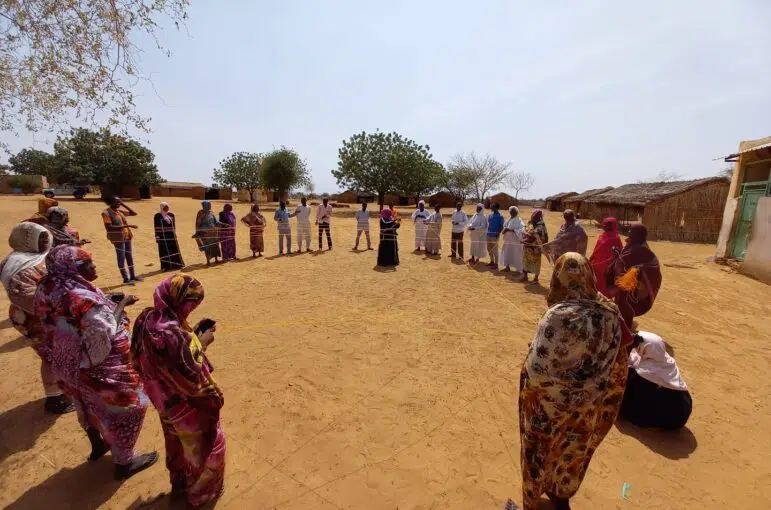Wellbeing in the Face of Violence
Trauma, Violence, and the Urgent Need for Wellbeing Support
Conflict and displacement take a severe toll on mental health, fueling cycles of violence, division, and hardship. Studies show that nearly half of people in conflict zones experience post-traumatic stress disorder, anxiety, or depression, yet mental health services remain scarce, especially in low-resource settings.
While humanitarian responses increasingly include mental health and psychosocial support, many interventions fail to connect with local healing practices or address deep-seated trauma. Without proper care, untreated stress can lead to long-term harm—eroding social trust, fueling violence, and making recovery even harder.
By addressing trauma as an integral part of Unarmed Civilian Protection, NP reduces immediate harm and interrupts cycles of violence. This reduces the likelihood of violence to re-emerge and fosters long-term healing.
Healing Cycles of Violence
In Iraq, unresolved trauma continues to fuel violence, but NP’s community-based approach bridges trauma healing and peacebuilding. Whether supporting communities recovering from IS occupation in Ninewa, working alongside Yazidis healing from genocide, or addressing violence against women and girls, NP ensures that trauma recovery is central to lasting peace.
NP’s organizational values—including nonviolence, radical connection, process-oriented work, and accountability—provide a strong foundation for integrating wellbeing support into protection programming. Recognizing that wellbeing isn’t something that can wait until “the conflict ends” but is also essential on the frontlines of active conflict, NP helps narrow the gap between traumatic events and response efforts, reducing the opportunity for untreated trauma to perpetuate violence.
In Ukraine, frontline stress and violence against women have intensified during the war. When Nataliya*, a survivor of intimate partner violence, sought help, NP provided a protective presence and introduced trauma-stabilizing techniques that helped her break free from the cycle of abuse and rebuild her life.
To address the gaps in support for local actors in Ukraine, NP’s Volunteer Resilience Programme offers confidential support. One participant says that if she had not met with her psychologist through the programme, it would be unclear how her life would have turned out — she might not have survived at all. The Ukraine team was also the first to implement the Peer Welfare Programme, physical and emotional regulation practices into child protection activities and into their psychological first aid trainings.
In the U.S., NP cultivates spaces for healing alongside community trainings that integrate mental health-informed de-escalation techniques, fostering resilience and collective care.
NP works to create a culture of care in the midst of crisis. In South Sudan, Hanan, a Senior Women Protection Team member, found healing and purpose after losing her husband in the civil war. Through NP’s support, she and her peers successfully advocated for safer conditions for women in displacement camps, reducing sexual violence at checkpoints and fostering reconciliation between divided communities.
“It was the right path for me and calmed my mind and it was good to be part of the community. The comfort I got from the NP team while visiting me, the way they talked to me on how to keep living,” Hanan shared. “Also being with the Women Protection Team and sharing with others what I went through and getting healing from it was very important.”
A Culture of Care—From Communities to Colleagues
NP’s commitment to wellbeing extends beyond the communities we serve—it is also embedded in how we care for our staff and teams. Working in the face of violence carries immense emotional and psychological strain, which is why NP prioritizes internal wellbeing support, including access to confidential counseling, peer support networks, and a robust safeguarding framework to ensure a safe and accountable work environment.
By integrating wellbeing into protection work—whether through community-led initiatives or internal support structures—Unarmed Civilian Protection fosters resilience at every level. Healing cycles of violence is about preventing harm by creating the conditions for people and communities to heal, rebuild, and thrive.
*Name changed for privacy

